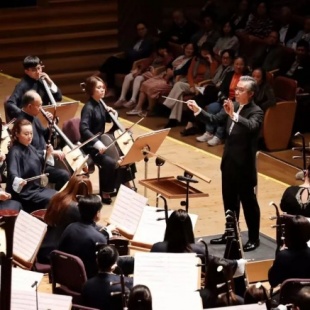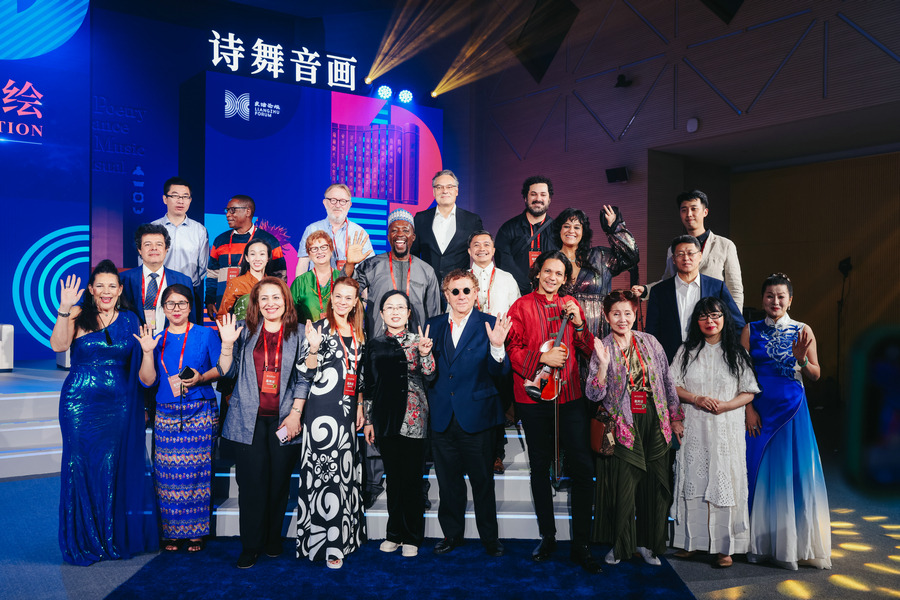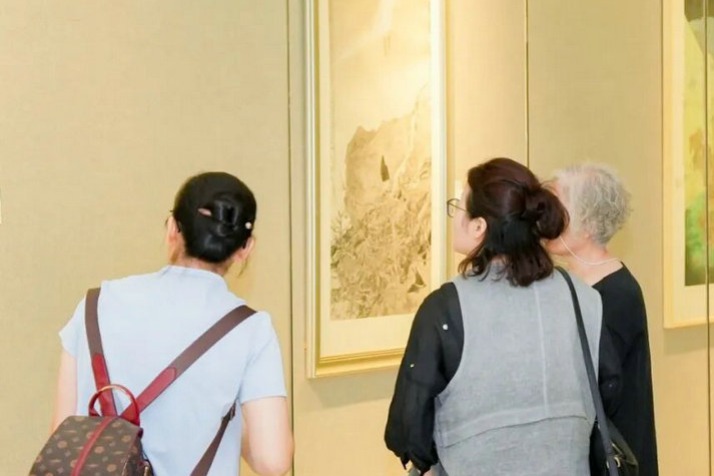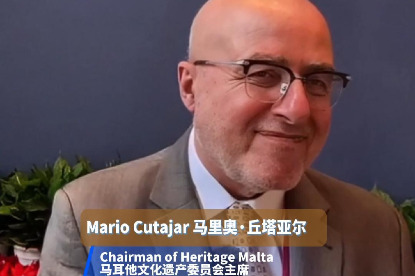A maestro and taskmaster in tune with standards needed to succeed

When he was at the China National Traditional Orchestra more than 35 years ago, Yan Huichang became known for being a stern, unforgiving conductor.
It was said that most orchestra members at that time feared the name of young "conductor Yan".Some even started practicing at home once they heard that he would be in charge of their coming rehearsals.
In 1987, Yan was invited to be a guest conductor of the Hong Kong Chinese Orchestra for the first time. Upon his return from the Hong Kong Special Administrative Region, he saw the following words on a notice board at the orchestra: "Dear members, please note that Yan Huichang is back. Store enough coal and food for life and do not think about asking for leave from work."
"Many had to be on their toes in my rehearsals, otherwise they would not be able to get through the day, because I would let anyone who could not do it (well enough) practice again," recalls Yan, adding the orchestra made enormous progress during the years that he worked there.
However, what distinguishes Yan from other conductors is that, he not only demands that orchestra members have exquisite practical skills, but also places a great emphasis on learning musical theory. Yan asks both his former and current orchestra members to "walk on both legs" — music technique and theory.
According to Yan, now artistic director and principal conductor for life of the Hong Kong Chinese Orchestra, many regard conducting as merely the leading of the orchestra, but he thinks that "the major of conducting is a major based on profound music theories". He says if members do not learn musical theory solidly, they will not be able to understand the score completely, let alone "spread the wings of their imagination" with it.
It is not a commonplace achievement to become a music conductor, not to mention being a top conductor of Chinese traditional music. But Yan has accomplished that, earning great renown.
Yan's unusual personal experience has lent him a hand in fitting into the role of a conductor. He discovered his interest in music by accident as a child, as he was not from a musical background and his father worked in education in Shaanxi province.
"The place where I grew up was in a mountainous area on the Loess Plateau in Northwest China, a small village containing only three households," Yan says.
When he was around 10 years old, Yan's elder brother started spending his pocket money on musical instruments. "He first acquired a dizi (Chinese flute)," recalls Yan. "I didn't expect that he would give it away to me so soon. After that, I found that music became the most important thing in my life, and it 'hit the start button' of my musical journey."
Later on, his brother also bought other Chinese instruments such as the erhu (Chinese fiddle), banhu (two-stringed spike fiddle) and sanxian. Whatever his brother bought, Yan learned to play. By the time Yan was in high school, he already knew a variety of folk music instruments, and he set up a school band consisting of over 20 members. The school principal also put him in charge of the instruments.
Yan's father took notice of his musical talent and encouraged the teenager to enroll in a music conservatory. Yan studied (and later taught) at the Xi'an Conservatory of Music. In 1978, he was recruited by the world-renowned Shanghai Conservatory of Music, where he studied Chinese folk music, Western symphony conducting and composing.
Upon graduation in 1983, Yan joined the China National Traditional Orchestra in Beijing. He later worked in Singapore and Taiwan, before he was invited to take up the position of music director of the Hong Kong Chinese Orchestra in June 1997.
Moving to the metropolitan city opened another chapter in Yan's music career. He became dedicated to promoting traditional Chinese music in Hong Kong, Macao and Taiwan, as well as overseas.
Of the qualities required to be a conductor, Yan says there are many abilities to cultivate. He compares it to being the director of a film or play, as one needs to understand lighting, stage arrangement and aesthetics, as well as the scripts. "Being a conductor is similar — a person needs to be a real expert in conducting, as well as someone who knows a bit of everything, a jack-of-all-trades," he notes.
"Everything that you can feel is what a conductor should know and should understand, and an artist needs extensive knowledge," he adds.
Yan often says conductors speak with their hands rather than their mouths. "Although the audience can't see the expressions on your face, they can sense all from your back," he explains. "If you have no good command, you can't utilize your hand and body movements to express what is on your mind as the conductor."
In addition to a professional spirit, Yan regards having willpower as an important quality for a conductor, who faces an entire orchestra consisting of dozens of musicians in need of specific guidance. "The ability to overcome difficulties is also key to being a successful conductor," Yan says.
?





































